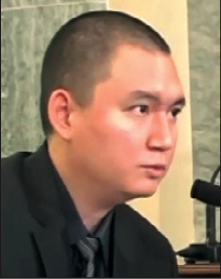
It may make no practical difference. Votes by the appointed members of the Western Pacific Fishery Management Council (Wespac) have traditionally been unanimous. But at the council’s June meeting, Elena Onaga of the National Oceanic and Atmospheric Administration’s Office of General Counsel announced that council member Michael Goto’s ownership interest in the company that runs the Honolulu fish auction rendered him ineligible to vote on proposed options for fishing regulations within the Papahanaumokuakea Marine National Monument expansion area.
As the council took up the subject of potential non-commercial fishing options for the expansion area, Mike Tosatto, head of the National Marine Fisheries Service’s Pacific Island Regional Office noted that Onaga had wanted to make a statement. She then told the council that her office had reviewed Goto’s annual disclosure form, which all members must file. “We’ve determined that council member Goto, as a partial owner of United Fishing Agency, Ltd., is required to recuse himself,” she said.
Onaga said his recusal was required under federal regulations that prohibit any “affected individual” from voting on any council decision that would have a significant and predictable effect on a financial interest disclosed in their report.
A decision is considered to have a “significant and predictable effect” if there is a close causal link between the decision and an expected and substantially disproportionate benefit to the financial interest of the individual, their spouse, minor child, partner, or any organization (other than the Council) in which that individual is serving as an officer, director, trustee, partner, or employee, relative to the financial interests of other participants in the same gear type or sector of the fishery, the regulations state.
Goto’s disclosure form notes that he has a greater than one percent ownership interest in the United Fishing Agency, Ltd., which runs the fish auction in Honolulu. The date of that interest began on October 23, 2015, according to Goto’s form. The fisheries of interest include longline, trolling, and bottomfish. UFA is engaged in marketing with regard to these fisheries, according to the form.
While Goto must recuse himself from voting on any proposed regulations for the monument expansion area — should the White House decide to keep the order establishing it intact — he may still participate in council discussions on the matter and even say how he would have voted. Wespac decided at its June meeting to defer voting on those regulations, given the ongoing federal review of monuments established by the previous administrations.
Tosatto has not yet responded to an email asking how Goto — due to his interest in the fish auction — would benefit or suffer from whatever non-commercial fishing regulations the council recommends. Whether NOAA will decide Goto’s interest in the auction will require him to recuse himself from voting on other council matters relating to commercial fishing in Hawai`i remains to be seen.
According to his disclosure forms, Goto did not have an ownership interest in UFA until days after Wespac’s last meeting in 2015.
At the council’s meeting in March 2016, Goto did vote along with the rest of the council on a number of actions related to the fisheries UFA deals with: urging NMFS to expedite its rulemaking with regard to bigeye tuna quotas to ensure uninterrupted fishing by the Hawaii longline fleet, directing council staff to work with NMFS and the IATTC to “evaluate impacts of management options that could provide relief to Hawai`i longliners while not resulting in overfishing,” and to have council staff write to the president to explain the “lack of conservation benefit” and the negative impacts an expansion of the Papahanaumokuakea monument would have on the Hawai`i fishery specifically and the U.S. seafood market more generally.
And at the council’s October meeting, he joined in voting to write the president to request that the ban on commercial fishing in the expansion area — which includes the waters between 50 and 200 nautical miles off the Northwestern Hawaiian Islands — be phased in. The letter was to also ask for “other programs that would directly benefit those impacted from the monument expansion.”
Goto voted for this shortly after hearing a presentation from NOAA general counsel Fred Tucher on when council members must recuse themselves. “If the interest or ownership level on the matter before Council is close to 10 percent, the Council members should speak to the attorneys in the room. The remedy is only recusal from voting. It is not disqualification from otherwise participating,” Tucher is quoted in the meeting minutes as saying.
Goto’s 2016 and 2017 forms only note that his interest in UFA exceed one percent. Tosatto has also not yet responded to an inquiry about whether Goto’s interest exceeds 10 percent.
— Teresa Dawson


Leave a Reply